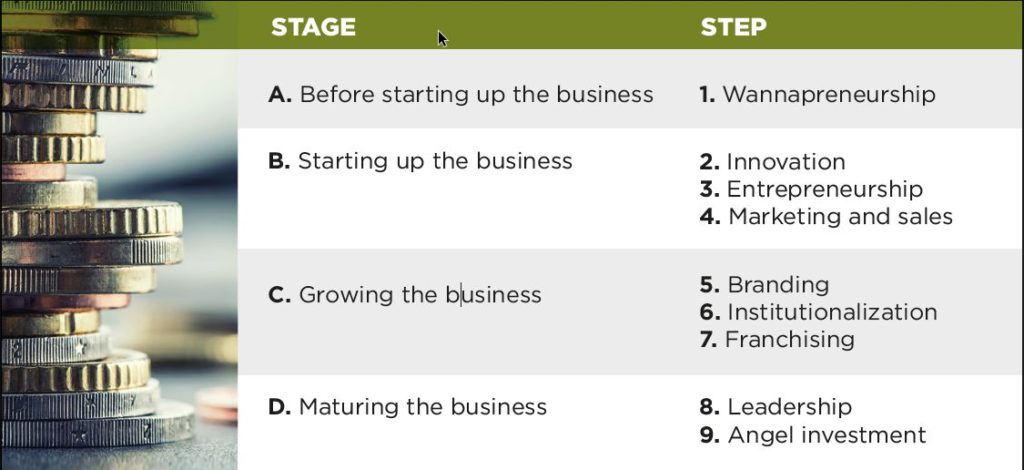SCT seeks to provide entrepreneurs with guidelines for start-ups that has been validated
by scientific research. Prof. Ketikidis explains.
What is SCT?
The Start-up Compass Theory (SCT) is a methodology based on a highly practice-oriented set of guidelines for future entrepreneurs who wish to successfully launch their start-up and ensure its growth. Originating from a well-renowned and lucrative entrepreneur, Baybars Altuntas, SCT has been used numerous times in practices with highly positive outcomes.
What does the SCT propose and what does your research prove?
The SCT proposes guidelines for the following key four stages of entrepreneurship: Stage (1) Before Starting the Business, also referred to as Wannapreneurship; Stage (2) Starting Up the Business, involving the steps of Innovation, Entrepreneurship, Marketing and Sales; (3) Growing the Business, including Branding, Institutionalization and Franchising, and finally (4) Maturing the Business, involving Leadership and Angel Investment. Our research proves, via nine interviews with key sectoral experts, that the SCT is a highly viable methodology that should be adopted by entrepreneurs. The research also shows the flexibility of specific pillars of the SCT which makes it a highly contextual and specific framework that can be applied across various regions and globally.
DESCRIPTION OF THE ALTUNTAS START-UP COMPASS THEORY
 What is the importance of this research for World Entrepreneurship ecosystems?
What is the importance of this research for World Entrepreneurship ecosystems?
This research aims to pioneer an innovative method initiated from the “practitioner” side, but aims to be subjected to academic scrutiny in order to formally validate its reliability and replicability in a universal manner – so that the scientifi c knowledge can be used to further extend and test it under innovative circumstances.
If start-ups follow the SCT steps, do they guarantee success? Or minimize risk?
At the end of the day, success can be independent of any academic or practitioner knowledge, however the SCT aims to guarantee success and minimize the risk at the same time. Based on a highly intensive practitioner testing as well as on the academic trial through the pilot study with 9 key experts, the SCT is deemed to be successful, though large-scale validation is required.
What are the contra-comments to your results? Any objection from the academic field?
The key contra-comments to our results reside mostly in the cultural specifi city of the 9 key experts involved in formally piloting the SCT validation. This way, one may argue that the SCT is localized and specifi c to the region of SEE. However, we are currently preparing a large-scale (global) study that will aim to validate the SCT model and ensure its trial-ability and universality.
From the academic field, the SCT is seen as an innovation which may cause knowledge-fl ow controversy. Specifi cally, it is often the case that innovations come from academia and then they are tested by practitioners. However, the SCT emerged the opposite way, with leading academics around the world currently concurring on this model.
How did you select the sample groups?
The groups were selected following an expert sample method by benchmarking the key leaders and infl uencers of entrepreneurship within the reachable region. Startup success rate, conversion time and overall profi ts (either directly through entrepreneurship or indirectly through mentoring entrepreneurs) were key indicators used to select “Success can be independent of any academic or practitioner knowledge, however the SCT aims to guarantee success and minimize the risk at the same time.” the participants. This well-chosen (though limited) sample of experts boost the reliability and validity of the fi ndings. Tough, large scale replication and testing are required.
“Success can be independent of any academic or practitioner knowledge, however the SCT aims to guarantee success and minimize the risk at the same time.”
What is your message to academic environments?
Any invitation to participate in co-research on SCT in different continents? The message is straightforward – we all need to be open to any new opportunity that challenges our beliefs. As we have shown, the SCT, even though it was not initially based on core academic foundations, is a very successful methodology for entrepreneurs.














